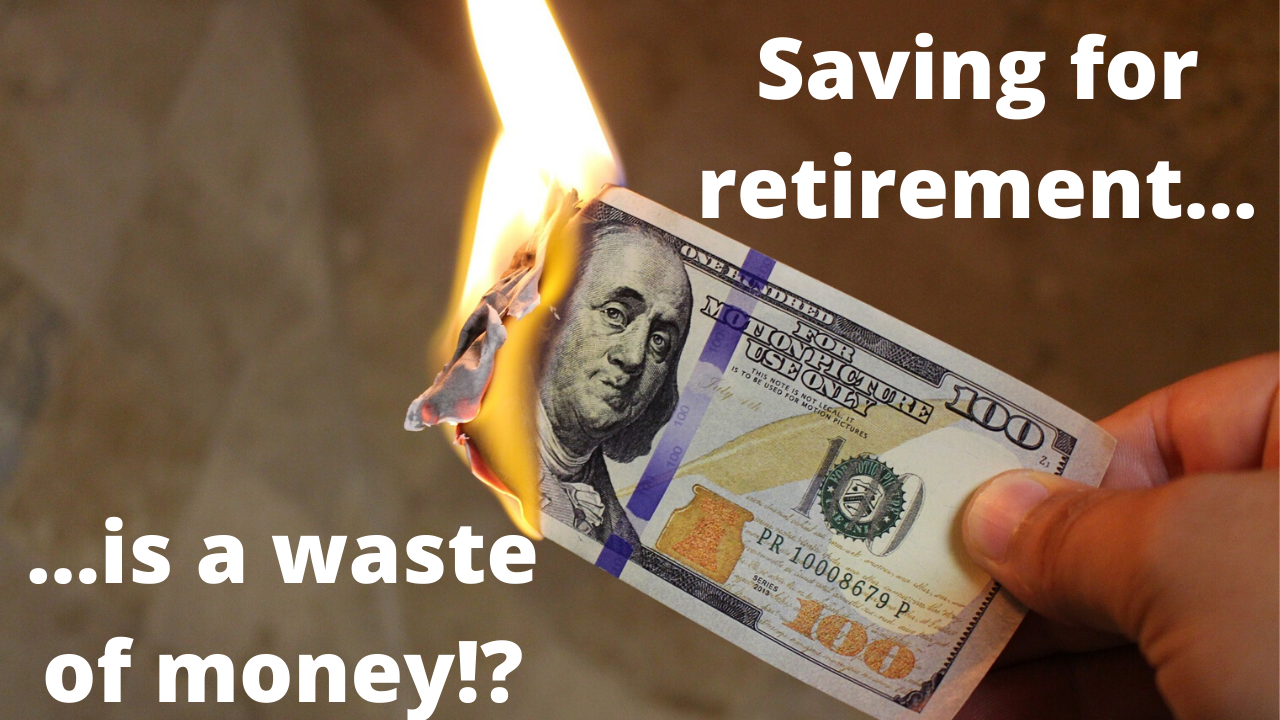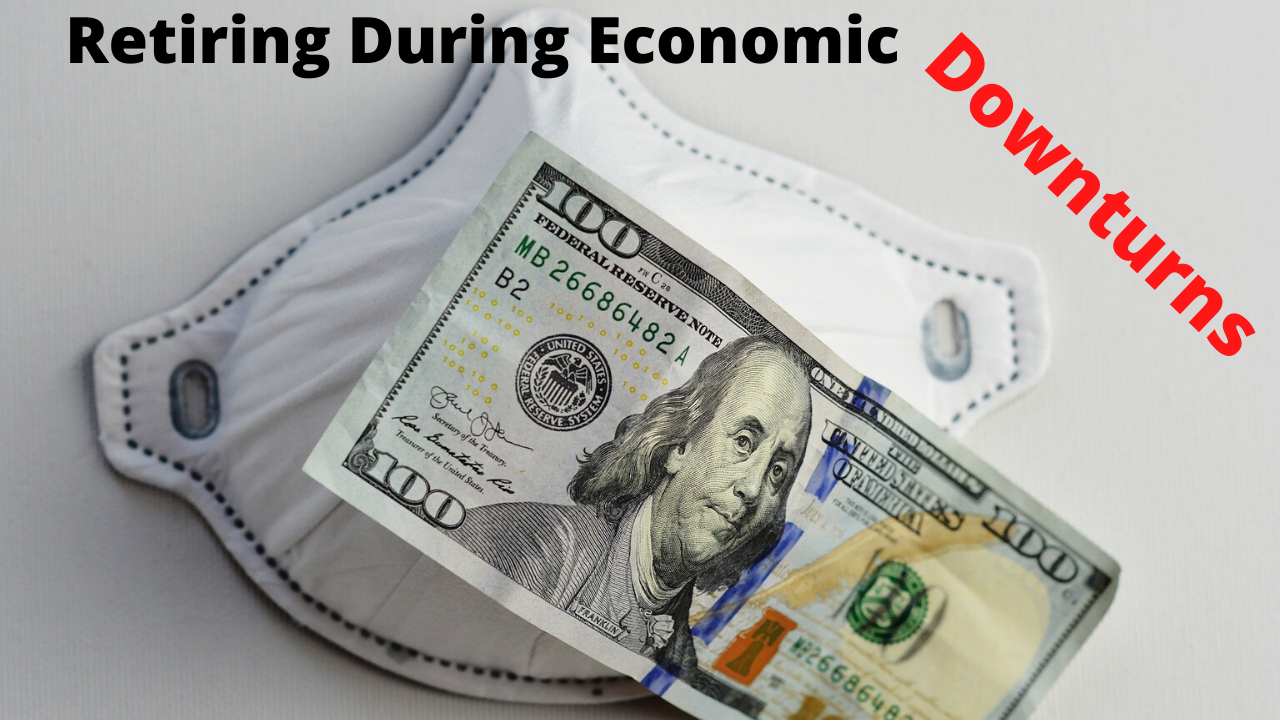Market Corrections and Recoveries
Summary:
The recent dramatic stock market decline is definitely unsettling for investors. Is it time to get out of the market? It is time to start buying?
In this show we talk about corrections and bear markets along with the recovery times. Listen in if you want an idea on how to handle the emotions that come along with these drastic market moves.
Watch Video Version:
Podcast Transcript
Daniel Wendol 0:00
With the recent drop in the stock market do to many things, including the coronavirus, people are beginning to wonder, Is this the end of the world? Is the stock market going to go to zero? And so in today’s show, we’re going to talk about corrections. We’re going to talk about bear markets. And we’re going to talk about the recoveries, the timing of it and what you should be thinking about when it comes to the stock market today.
Hello and welcome to another Dolphin Financial Radio show with me Dan Wendol, owner of the Dolphin Financial Group. Alongside me Tony Shore, Tony, we’ve had some major volatility lately. Last week we had one of the worst, if not the worst, weeks in the stock market history. People are starting to panic, not just because of this coronavirus and the health issues, but also, it seems like a lot of people are panicking in the financial markets as well. So I figured we might as well talk about it. We’ve had shows on this in the past, but I figured we might as well just talk more specifically about corrections. And not necessarily about what’s going on today. But generally speaking, what we should expect to happen based on history.
Tony Shore 1:35
Yeah, and so, wow, there is a lot going on out there. And I mean, you you hinted, I don’t know if jokingly, but the end of the world and just nervous laughter from me at that point. When you mentioned the end of the world, not complete laughter. The talking heads are going crazy about this out there.
Daniel Wendol 1:57
Well, there’s a lot of panic just about the virus and we have the stock market being impacted greatly from this. It is a bit of an outlier. But why don’t we start by talking generally about market corrections and recoveries? I think it’s worth noting in context.
Tony Shore 2:19
Well, right. And just for to help kind of simplify it. There’s bull markets, which is when the market is way up, which we’ve been in for a long time. And then there’s bear markets where you have a huge drop. Then there’s corrections. That’s like three different stages of the market. Right?
Daniel Wendol 2:39
A correction, technically, is a 10% decline from a peak. So a decline from a high. We’re in a correction. We’ve reached a correction. When you have, I think it was two days last week or two or three days, there was back to back, and from the top to that bottom over that short amount of time, there was above a 10% decline. So that is technically a correction, as defined by the Guru’s. The charts will show that there was a correction at this time. But they happen a lot. Corrections actually happen quite a lot. And so what I want to do is talk about it in context. I’m going to use some research from CNBC and Goldman Sachs. They have a very brief article highlighting this but they have some good charts. It’s called “Here’s how long the stock market corrections last and how bad they can get.” https://www.cnbc.com/2020/02/27/heres-how-long-stock-market-corrections-last-and-how-bad-they-can-get.html. This was published recently, obviously, because people are starting to think about this. We’re in a correction, and there have been 26 corrections since World War II. Back when you were a young, really young kid.
Tony Shore 3:55
Yeah, I was not around then. Very funny Dan.
Daniel Wendol 4:00
Do you remember when the last correction was?
Tony Shore 4:07
Was it actually the end of 2018? It dropped quite a bit then.
Daniel Wendol 4:11
Yeah, that’s right. We were over 10% drop in the fall of January 2018. And I remember that vividly because I remember I had a few new clients join me and immediately get crushed. And I think it turned back positive on Christmas Eve, if I recall, but September/October was terrible of 2018. And we were down 19.8% or it was wasn’t above 20% because that’s, that’s the next part. So a fall above 10% is a correction. You know, if you down 5% it’s just a bad day, right? But if it’s 10 percent then you’re in a correction. If it’s above 20% now we’re in bear territory. So I remember that back in September of 2018, October of 2018, we almost got above 20 but we didn’t and that was important because then no one could say we’re in a bear market because technically we weren’t. It sure felt bad because it was a pretty short little blip.
Tony Shore 5:23
Yeah, it did. It was a short blip but it did it impacted a lot of folks but the market is gained that back and then some or had anyway and now we’re seeing this. Some people are out there yelling The sky is falling. I mean, I I have to laugh, I’ve heard everything from you know, you have on one end, I was flipping channels and I don’t know CNBC, that there -“Yeah, don’t worry, this is this is to be expected. And this is right because the market was way overvalued anyway, I expected to go down some more, because the market was overvalued.” So that was his take, then the next person is like, “nope, this is the, this is the beginning of the end, it’s just gonna keep dropping and the sky is falling.” Then I flipped the channel, and somebody was on there talking about how it’s Bernie Sanders is causing the market to drop. And I laughed I had to laugh. You can hate Bernie Sanders, but I highly doubt he’s influencing the market at this point.
Daniel Wendol 6:22
You can make a case that he’s the front runner for the democrat nomination, so his policies might impact the market. So if there’s a chance of him winning people going to say the market is going to decline. I will say this, Tony, one of them is right. Which one?
Tony Shore 6:37
Yeah, yeah, one of them is probably right. Probably. I’ll go with the the old Warren Buffett saying, hey, if you have the timeframe on your side, don’t worry about it. Because, you know, it dropped a lot more in 2008-2009. And if you just stuck with it, you’re you were golden.
Daniel Wendol 6:59
But not everyon has that time, including Warren Buffett, he doesn’t have the time we know that. It’s easy for him to say because he’s got billions, right? So what do we say to the average Joe? Like you and me? What about my clients? They’re panicking. The newer clients, the people that are new to me, they’re going to have a little bit more panic, because they haven’t seen this with me. They haven’t gone through it. But my clients that have been with me and they’ve seen this, then they know. And and so let’s, let’s talk about that recovery. Because you were right, we bounced back from that 2018 dip pretty quickly, actually. If we look at the corrections there’s been 26 since World War II. The average decline has been 13.7%. So we were there last week in you know that just one week, which is rare, you know that usually doesn’t happen so quickly. The usual decline is over four months. You don’t typically see, a three day period where you’re in a correction. So this one is a little different, right? But for the most part, the average decline is almost 14% over four months, and then this starts to come back. And then it recovers fully, meaning it’s back above where it started, in four months. So of those 26 market corrections, the average has been four months recovery, which is pretty palatable. If you say, oh, man, we’re going to come back and and the average time has been four months you could say all right, well, by the time the summer is over, we might be back ahead of where we were. So that is what that first guy you were saying is saying. We’ve been high. We have corrections. Don’t panic we will be ahead of this in the future anyway. But how do you deal with the people that say, well, the sky Falling? There are times when it doesn’t come back in four months, and there are times where it’s well above a 13% drop. That’s where we get above 20. Anything above a 20% drop is called a bear. A bear market. Oh, now we’re now we’re in trouble right? There’s been 12 bear markets since World War II and the average decline is over 30%. This is where people start to get a little anxious. Because now, if we’re down 30% you know, even with this recent decline, we’re still ahead of where we were a year ago, six months ago, you know what I mean? So it’s not as though you started investing and you’re down 20% or 10%, except for the people that have. So that’s the problem with the newer clients that I have that just invested. Welcome to the market, we’re going to get started with a new program and then BOOM, they get hit. Those are the people that have the biggest sour taste in their mouth. But for people that have been in the market for a lot of time, which is what you were saying with Warren Buffett, they are ahead of the game than they were a year ago. No one likes to see that gain go away though. Why didn’t I sell at the top? Why didn’t I lock in gains? Those are the questions – they start to second guess themselves. And then what do they typically do Tony?
Tony Shore 10:39
They panic and pull out and sell at the bottom.
Daniel Wendol 10:43
Yeah. But let’s take a look at these bear markets because we could very well fall into bear market territory where we’re over 20% down, 30% down. There’s been 12 times since World War II and it’s happened over 14 months. So it’s not as if it happens over a day or two, it happens over 14 months or a year of decline. So we could be in a decline for a long haul, which no one wants. And then it takes 24 months to recover. So we’re looking at a two year recovery versus a four month recovery. The way to get there is that you have to be in a bear market. And you have to have some sort of recession going on. So all talk and hype lately about in the politic political world has been we are in a growing economy economy’s doing great and great. So we’re in this kind of weird situation where the markets are experiencing downside volatility. It seems like a blip and it doesn’t coincide with the overall general economy. So that would lead people to say, Oh, this is just a quick little blip and it’s due to a Black Swan event like the corona virus, which doesn’t really help anybody decide what they should do, right?
Tony Shore 12:07
No, that’s that’s not necessarily super helpful. I mean, it is one take, and it’s very likely that that could be it. But in the meantime, you know, we don’t know if it’s gonna keep sliding. Sometimes it’s just the feather to push it….
Daniel Wendol 12:24
That’s right. And maybe there were a lot of people that were waiting for this to say, I needed an excuse to take my profits. I’ve been holding and holding since the crisis. Now I’m up big. And I’ve been looking for a reason to sell but I don’t want to but this one seems like a good reason. And everyone else seems to be selling so why not me? And then I’ll wait to get back in and so there are people that will do that. And then it will exacerbate the issue. So there’s no right answer. I’m not gonna sit here and tell you I know what’s happening. Because then I’ll be on the TV like everyone else, and someone would come on right after me and tell me how much of an idiot I am. Right? There’s always going to be people that take contrarian views to everything. But I will say this, these are inevitable. This could be a unique situation, but I look at it as an opportunity. And I’m not saying I’m all rosy, you know me, I’m not Mr. happy go lucky. I’m a realist. So this is painful. I don’t like it. I have my clients money in the market and and they’re losing money. But I look at as an opportunity to stress test their financial plan. If I get clients calling me in a panic saying, I can’t handle this, this is too painful for me. Then we didn’t set it up properly. Then we didn’t have the big picture plan. Most likely they don’t have a solid income plan. They don’t know where their income is coming from in their retirement. So they’re starting to panic because they expected the money to come from the stock market. Those people don’t have a solid retirement income plan, so they’re the ones panicking, and I get that. But for my clients, we start with income and most of my clients have guaranteed income from a pension or social security. They probably have an annuity or something, where it’s giving them some sort of income. So they’re not looking at this correction, or even a bear market as make or break.
Tony Shore 14:29
Because they have some money where their principal at least is protected.
Daniel Wendol 14:35
Right. Teir pension or their social security check on isn’t going to stop. Their annuity checks aren’t going to stop because the stock market dropped 10% in a two day period. They’re upset. Obviously people don’t like to lose money and they have money invested. They like it to go up, but they don’t actually need to go up. Is that a good way to say it? It’s not like it’s their fun money, but it’s their inflation protection. It’s their long term view money. So they understand, hey, this is going to come down, it’s going to go back up in the long run, this is the place to be. And they still get angry and upset and anxious, but they’re not overly anxious because it’s not impacting their retirement lifestyle, because it’s not impacting their income, per se.
Tony Shore 15:23
So it’s better to have. when you say balanced portfolio, you don’t mean balanced within the stock market, you mean balanced assets outside of the stock market as well.
Daniel Wendol 15:35
That’s right, exactly. So when most people think I have a balanced portfolio, I got 60% stocks, 40% bonds, that’s not what I’m getting at. It’s important to have a balanced portfolio in the market. So you have international, domestic and so forth, and bonds and stocks, but you should also have real estate, you should also have precious metals, perhaps, you should also have some income. You need that income. That’s what I’m talking about. So as long as you’re balancing you’re income sources, and you’re not relying on the stock market for all of it, then you can have the ability to withstand these dips, these corrections, and these bear markets. And so what I’m saying is, this is an opportunity now, where you can test your portfolio and see is this really the way I want this to continue? As you get older and older, you’re going to even be less tolerant of these dips. Even if it doesn’t impact you as much, you’re still not going to like it, because you’ll remember the pain that you feel today. This is an opportunity for people to really look at their plan and say, How do I feel right now and do I want to deal with this in the future? Because it’s going to happen again, and it might not be for a while. It may take a while to recover. Can you survive it? If you’re struggling, then you probably had a bad plan to begin with. You have to measure it. I’m going to also say, not to beat on it, you have to talk to someone about it and get an opinion on it. The other opportunity here is this might be a buying opportunity for someone that was on the sidelines. Someone that a year ago said, Oh, the markets at its high, I’m not going to buy. And so they sat in cash and then the market goes up 30% and they said, Wow, I just missed out. Now the market is going down. Maybe they start to think maybe I could start getting into the market. You know, to reference Warren Buffett, it’s good to be, cool, calm and collective in when everyone else is panicking, and then kind of be a little scared when everyone else is being optimistic. I was paraphrasing a bit there. But when people running for the exit, that’s the time for you to start looking at maybe coming in. Especially for those who have been on the sideline for a while.
Tony Shore 17:53
Yeah, True. True. Putting new money into the market when it’s low is always a good idea.
Daniel Wendol 18:01
But again not everyone has new money. Not everyone was on the sidelines. A lot of people are in the market now. They’re 100% invested and they are starting to get a little anxious about it and I get that. It’s totally natural. You have to control your emotions in these parts and and make sure you use it as a learning experience in a growth opportunity and that could be reevaluating your plan or putting more money to work now when the markets are going down. And don’t try and time it though. Don’t pick the bottom Tony, we know that. It’s catching a falling knife. Good luck with that.
Tony Shore 18:39
Yeah, some people say “I’m gonna wait till it hits bottom”. Well really? Because how are you going to know that because no one knows!
Daniel Wendol 18:46
But your uncle knows it right? Your friend knows. Of course they know it.
Tony Shore 18:49
Yeah. your coworker, your uncle your next door neighbor who likes to talk to you over the fence about how great his portfolio is doing .
Daniel Wendol 18:57
Right. They picked the bottom in 2008. They picked that. They missed that whole downside because they knew. Don’t fall for that because they’re just lying. Now’s not the time to panic but also now’s not the time to sit there and put your head in the sand. You have to be proactive about it. You have to think about it. Talk. Don’t let the anxiety overtake you. I want people to realize these happen all the time. They take a while. The bear markets, they might take two years to recover. The really bad ones that over 40%, it could take five years to recover. Are we there? Who knows? Don’t panic, that’s the key. Don’t fall victim to this again because I have a feeling there’s going to be people that got hurt in 2008 and they said “never again” and then they got back and got a bit exuberant and now it’s happening again. They’re saying I wasn’t going to get fall victim to this again. And here I am. And never again! So be smart about your investing. As you’re getting closer to retirement, take the chips off the table. You don’t have to hit home runs anymore. Just stay in the game and hit singles. That’s the way I look at it.
Tony Shore 20:20
Yeah, there you go. There you go. Yeah, it’s tough. People want to try to time the market or they want to let their emotions make their decisions for them. When things are going badly, they take everything out, which can be a huge mistake. So it depends on your situation and that’s why you need to work with a financial professional like yourself. So Dan, let our listeners know before we go, how they can get a hold of you and set up that complimentary no cost, no obligation consultation.
Daniel Wendol 20:54
If you want someone to take a look at your portfolio in light of this crisis…I’m not suggesting to make crazy financial moves right now. You know you don’t want to act emotionally, but it might be time to get someone that’s not emotional, like me, about your money. It’s your money you’re going to be very emotional about it. I can be very unemotional about other people’s money. So if you want to talk about that, I’ll be happy to look at your stuff. Just give me a call at 888-508-5935 or just go to www.DolphinFinancialGroup.com
Thanks for listening to Dolphin Financial Radio based in the Clearwater, Tampa area.





